- Home
- Lynne Connolly
Temptation Has Green Eyes Page 2
Temptation Has Green Eyes Read online
Page 2
The frown disappeared and Russell laughed outright. He glanced around as someone approached them, but their combined stares saw him off. The man quickly turned tail and turned around.
“No.” Russell turned back to Max. “She’s been on the town all her life. Here’s my proposition, and it’s as businesslike as any other we’ve undertaken or are likely to make. You’re young, you’re wealthy, and you’re as honest as any businessman I’ve ever met. I observed you for some time before I agreed to work with you, and I’ve been very pleased with our dealings together so far. I want you for Sophia. Wait—”
As Max would have spoken, Russell held up his gnarled hand. Max remained silent.
“My Sophia deserves the best. You could take my company and make it the biggest in the City of London, which means in the world.”
Staggered, Max was lost for words. He closed his mouth with a snap. Russell continued with his proposal.
“If you agree to do this, I’ll make you my heir. It will be part of the marriage settlement.” He leaned back, his attention fixed on Max. “It’s a good offer.”
Just as if he was offering another business deal, which, to all intents and purposes, he was. Except it involved far more personal relations than any other business deal would. Was Max ready to let a woman into his well-ordered life?
The sound of the coffee house continued as if Max’s world hadn’t spun on its axis. The buzz of conversation went on around them, punctuated by occasional shout or laugh. Normal life revolved around him as he fought to get his thoughts into some kind of order.
“Sophia will make you an excellent marchioness.”
About to refuse outright, Max paused, staring at the man who had made such an outrageous offer. A cit to a marquess. But an extremely wealthy cit to a previously impoverished marquess. His title hadn’t put food on the table; his business acumen had done that.
If he wanted a wife, Sophia was the kind of woman he’d be looking for, rather than a society maiden fresh out of the schoolroom. She had business acumen, and she was attractive enough, from what he’d seen of her.
And the inducement—mouthwatering. He could give his mother her life back and continue with his own. After all, he knew hardly anyone whose marriage hadn’t been arranged. What was this but another one?
What was he thinking? Max had always sworn to avoid the arranged marriage. He wanted to choose his wife for himself. But if he agreed to this, he’d have everything he ever wanted, not just for himself, but for his mother and his sister, Poppy. Not such a sacrifice. And many married couples lived completely separate lives. His heart sank and his stomach hollowed. Above all things he wanted a harmonious home, someone he could build a life with. But love—he didn’t want that. Bile rose to his throat. Not for him, never.
Russell tapped one finger on the table, bringing Max back to attention.
“Walk back some of the way with me.”
Max accompanied Russell to the offices of his man of business, where his own would be waiting in a very different frame of mind to the one he’d expected. Not happy with a job well done, but in complete turmoil. Marry? He tipped back his head, sucking down as much fresh air as this crowded part of London afforded, trying to shake some sense into it.
Russell remained mainly silent during the short journey, giving Max a chance to settle his whirling thoughts.
Without a husband and with the gossips busy circulating the stories spread by her erstwhile suitor, Sophia would be a target for every unscrupulous fortune-hunter in the country. But no respectable men. Her reputation would be wrecked by the man she’d refused.
Russell’s wealth ensured that she’d find someone. Max could induce his mother to introduce her. But the kind of society his family moved in contained more fortune hunters than anywhere else, because it also contained some of the wealthiest and best connected people in the country. Mercenary and vicious, they’d quell Sophia, mistreat her, and waste her fortune. Several of that breed had attached themselves to Poppy, or tried to, before Max or another of his male relatives had seen them off. Without that protection, Sophia would be achingly vulnerable.
Max wasn’t the only man left with little fortune and a huge monstrosity of a house to care for. Many men would be glad of Sophia’s wealth to shore up their ailing finances. They’d care for her, too. Not all fortune hunters were heartless.
But that wouldn’t help his business. Max could help Sophia find someone suitable, but that would distance him from the business he’d worked so hard to connect with.
They walked past other coffee houses with businesses as thriving as Lloyd’s—Tom’s with its clutch of men looking for women to pass the time with. A house that infuriated the magistrates at Bow Street because no actual illegal acts ever took place on the premises.
Then they passed the theater at Drury Lane, its doors currently closed pending the evening’s performances, and turned the corner, away from Seven Dials. Nobody went that way unless they had some criminal business to pursue. They passed several tall buildings lining the narrow streets with columns of brass plaques outside, indicating the concerns based there.
Normally Max would be reveling in the place, in the variety and the exhibition of life in all its variations, but this time he only noted the familiar landmarks without thought. His mind was occupied with one thing. Sophia. A pretty girl, and one who answered sensibly when addressed, but not someone who quickened his heart or had attracted much of his attention. No sense of excitement or anticipation when he’d seen her, which was rarely.
Was she avoiding him? He didn’t think so. Perhaps she was as reticent with everyone she met. That didn’t augur well for Sophia as a society lady. Reticence would be considered bad breeding, nothing more.
Children of Max’s station were bred to expect people to stare at them and single them out. They should not avoid that task. Otherwise it could be regarded as bad manners. Would Sophia make a good marchioness? The reticence didn’t indicate that.
Before they reached their destination, Max recommenced discussing the problem with Russell. They were moving too fast and with too much purpose for anyone to catch more than a few words in passing, so they were as private here as at the discreet corner table at Lloyd’s. “Do you intend Sophia to continue the business after she marries, or will you expect her to withdraw from commercial life?”
Russell laughed as he dodged a dark pool of something unpleasantly liquid. Since it hadn’t rained for a day or so, it was unlikely to be water. “I’d consider any man who chose not to consult her an idiot. She knows the various enterprises as well as I do. It’s sheer madness to ignore expertise in whatever guise it appears, male or female.”
Relief flooded him. She was an intelligent woman, then. “Why the hurry to hand over your business? You, sir, are in your prime.” He assumed Russell to be around fifty. His vigor and mental acuity pointed to a lack of extreme age.
Russell raised a brow. “Thank you for that. It’s time I took life at a more leisurely pace.”
Did he have a health problem? The lines of his face and the gnarled hands were probably from Russell’s early years on board ship, where he made his first fortune. But perhaps the lines were deeper, the eyes a little less clear.
“My daughter is twenty-four. She needs a husband, one who will care for her and ensure she comes to no harm. And you are the best candidate. My lord,” he added as if an afterthought.
In fact, Max’s colleague was reminding him of his exalted title and station. True, he could enhance Russell’s business merely by being a peer of the realm.
He could finally restore the house. His parents had spent all their money and lavished their love on the house in the country. Devereaux House had been a large establishment, suitable for a marquess’s main residence, and his parents had enlarged it still further. Now it was packed with treasures, beautified, and redesigned.
His land steward had loftily informed Max that the house contained as many room
s as there were days in the year. The news appalled Max. How could anyone live in a monstrosity that size? Now the place belonged to him, or more precisely, had devolved to him with the entail on the land. He couldn’t sell it. He never went there.
After his father’s death, Max had closed and shuttered the place, retaining a skeleton staff to keep the house clear of the pests that might damage the treasures. Even that had cost him more than he could afford.
His mother had adored her husband, and therefore she adored the house, too. Not that she lived there. That was a constant needle in Max’s side. His mother should have her house back.
With Russell’s fortune, starting with the no doubt generous settlement that would come with Sophia, he could do it. Restore the parts that had suffered during his time as owner and give it back to her.
And he wanted to give his sister something more than she had now. Poppy deserved better. Because she was a single female, she had to live with her mother, which meant sharing the peripatetic life the dowager Lady Devereaux led these days.
Poppy should have a proper London season with the clothes to match. But when a lace petticoat cost more than a ship’s captain could earn in half a year, that was difficult. Had been difficult.
Now Max could afford it, but he still needed a chaperone for Poppy. Somebody like—a wife.
He kept coming back to the inevitable topic. The walk only served to firm his resolve, which Russell probably knew since he kept quiet for most of it. A good businessman knew when to keep his tongue between his teeth.
They halted outside the office. Did he go in or not? Would he accept this agreement?
He had no choice.
Russell had dropped his daughter on Max like a woodcutter felling an oak tree.
“In principle, I agree to both your propositions,” he said as calmly as he could. “Shall we?” Courteously he let the older man enter the building first and followed up the narrow stairway leading to the busy solicitor’s office, the clerk with half a dozen quills stuck in his hair waving them on with only a small bow of acknowledgement.
All through the discussion of the various documents that put the agreement in place, Max’s mind kept drifting elsewhere. Every time he hit upon an objection to the marriage, a reasonable solution popped into his mind.
Now he’d regained his fortune, women would start chasing him. He’d seen it happen to other men. Now his turn had arrived. Some mysterious scent, like trailing a corpse for the hounds affected men of title, wealth, and enough youth not to repel. No, forget the last one, Max had seen eighty-year-old dukes fall for the wiles of a twenty-year-old woman.
Hell and damnation, he’d never had this difficulty making up his mind.
Yes, damn it, he’d do it. He nodded when Mr. Fisk hesitated. “Go on. I daresay the marriage settlement is here?”
His own man of business shot him a startled look. Max gave him a beatific smile in return. The original contract agreed upon, they settled to discussing the marriage contract and its ramifications.
So Sophia was four-and-twenty? He had thought her younger. That changed his perspective on his colleague’s proposal because he’d never been in favor of marrying chits straight out of the schoolroom. He’d never had the luxury of a childhood or the customary Grand Tour that young men of his status generally undertook before settling into what passed for ordinary life. Max had little in common with the brats he’d been introduced to and found more conducive conversation with older women, who’d seen a little more and expected a lot less.
He had to force himself to concentrate on the signing. He never signed a contract without reading it through just before he signed, in case the other party had tried to slip something in, hoping he wouldn’t notice. He always noticed.
Today he could have been signing his soul away to the devil. He tried, but couldn’t concentrate.
He hovered his pen over the other contract, the one binding him for life to a woman he hardly knew. And had a brainwave. “I cannot sign this without the other party present.”
“Of course,” Russell said smoothly. “But we can have it ready for Sophia to sign. You can sign your part now.”
Max tested the proposal, considered the aspects of tying himself to someone for life. If the personal association didn’t work, they would always have the business one.
When Max made a decision, he didn’t delay. He preferred to see the matter through swiftly and efficiently. As far as he was concerned, the matter was set aside to be filed with a blue ribbon, his office code for “Done.”
He signed the document in the requisite places with a few sure slashes of the pen. Then, with a smile, he returned them to their men of business to arrange the copies and the filing.
He’d leave telling his mother until tomorrow.
Chapter 2
Sophia was sick of fielding questions about the young men she might consider marrying. Her father, his good mood flowing over to the dinner they held that night, kept the gentlemen in the dining room longer than usual, and Sophia, perforce, had to entertain the ladies in the drawing-room.
One lady suggested that John Hayes would be growing impatient.
He could get as impatient as he liked, but he wasn’t coming anywhere near her again. She forced a smile and gave a non-committal, “Really?” with a touch of aspersion.
She’d trusted a man who had traduced and despised her. He’d only wanted her for her money, nothing else, but she’d believed every lying honeyed word that had dropped from his lips. Until that afternoon when he’d taken matters too far. Her father had ejected him from her life. She was surprised she hadn’t felt a jot of regret, not even recalling the times John was so charming to her. She didn’t miss him one bit.
“But I daresay we’ll be hearing an announcement soon?” Mrs. Cleverly said.
If Sophia said anything other than, “I don’t know,” the news would be all over London, at least the part of it that mattered most to her. She gave a wan smile. “We found we didn’t suit. I believe he has found a position elsewhere.”
Enough of a hint to suggest the fault was on his side. As much as she dared, anyway.
Mrs. Cleverly’s carefully penciled brows rose a fraction. “I thought you were almost declaring for each other.”
Sophia shook her head. “We never took matters that far.”
Another lady, a younger one, and the wife of one of London’s most daring investors, said, “But what about that handsome marquess?”
Immediately Sophia’s thoughts flew to the Marquess of Devereaux, and inwardly she groaned. He barely noticed her, probably didn’t know her name. “He is my father’s business associate. I admit he is handsome, but City and County don’t mix, do they? More tea?” She lifted the pot, shaking it a little to make sure there was enough left.
She’d noticed him from the moment his tall, lean form entered the banqueting hall at the Guildhall, at the formal dinner she was attending with her father. He’d made her feel underdressed and inconspicuous, but not from anything he did. He was punctiliously polite. He had exchanged a few innocuous words with her and moved on, leaving her gaping at his sheer masculine beauty and his elegance.
He probably wouldn’t remember her name if she met him again. Or perhaps his impeccable manners had led him to commit it to memory. Sophia wasn’t fooled, though. He’d only spoken to her because he was courting her father. No gleam of interest sparked his astonishing green eyes, no warm words or a request to visit her home. Not that he could, because Sophia had done away with chaperones a year ago and firmly declared herself perfectly able to run her own affairs.
More fool she. If she’d allowed her tedious aunt to stay, she wouldn’t have got into the pickle with John.
Half an hour later, she closed the door on the last guest with a weary sigh.
She picked up the silver snuffers, extinguished the candles in the sconces, crossed to the table, and extinguished the others. The fire and the moonlight glimmerin
g through the gap in the window shutters produced the only remaining light. Unearthly, it streaked across the room to cast the portrait of her mother in a silvery glimmer.
If Sophia were superstitious, the ethereal light would worry her, but she’d seen that effect more than once. Merely a product of the situation of the portrait and the way the moonlight hit it. Instead of running screaming, she stared at the painting of the lovely woman who’d died six years ago.
She smiled up at her mother. Lady Mary Howard was depicted at the height of her beauty, holding a fan in her satin-clad lap. Although Sophia shared her mother’s coloring, she didn’t otherwise resemble her much. Nor her father. Perhaps she looked like her grandparents, but since both her mother and her father’s parents had died before she could properly remember them, she could only speculate.
The door opened. A figure stood shadowed against the light from the hall. “Sophia, are you all right in here with no lights?”
“I was just putting them out, Papa. The servants will bring their own once they come to clear up. No sense wasting best beeswax when there’s nobody in here.”
“Ever the housekeeper. Sophia my dear, come and talk to me. I have some news for you.”
She couldn’t see his smile, but she could hear it in his voice. She couldn’t pull her watch from her pocket to check the time in this light, but she was tempted to depress the repeater to hear it chime the hour. Her father would hear it too, so she resisted. “Father, it must be ten o’clock. I thought you’d gone up to bed.”
“I have some news for you, and I don’t wish to wait. Come.”
Unusual for him to be so uncharacteristically impatient. Sophia followed her father out of the dining room and downstairs to his study. Her father conducted some of his business from here.
She knew it well, from the legal documents tied with red tape to the tall account books he kept here. With fire a constant threat, her father always had two copies of every important document written out. The original for the office, one for here, and another for the house in the country. Somehow Sophia doubted London would see another Great Fire, but as he often said, “You never know.”

 Boundless (The Shaws)
Boundless (The Shaws) Sinless (The Shaws)
Sinless (The Shaws) The Girl with the Pearl Pin
The Girl with the Pearl Pin Hosts to Ghosts Box Set
Hosts to Ghosts Box Set The Making of a Marquess
The Making of a Marquess Boundless
Boundless Beauty of Sunset
Beauty of Sunset Virginia And The Wolf
Virginia And The Wolf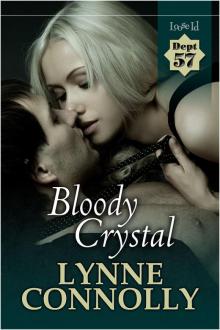 Department 57: Bloody Crystal
Department 57: Bloody Crystal Temptation Has Green Eyes
Temptation Has Green Eyes Forged by Love: Even Gods Fall in Love, Book 4
Forged by Love: Even Gods Fall in Love, Book 4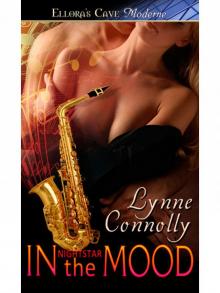 IntheMood
IntheMood Hareton Hall: Richard and Rose, Book 6
Hareton Hall: Richard and Rose, Book 6 ShiftingHeat
ShiftingHeat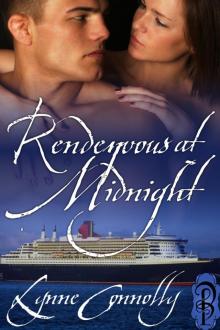 Rendezvous at Midnight
Rendezvous at Midnight Yorkshire: Richard and Rose, Book 1
Yorkshire: Richard and Rose, Book 1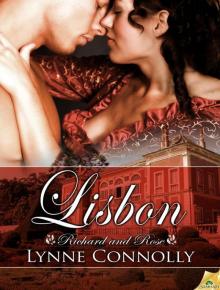 Lisbon: Richard and Rose, Book 8
Lisbon: Richard and Rose, Book 8 Devonshire: Richard and Rose, Book 2
Devonshire: Richard and Rose, Book 2 Venice
Venice War Chest: Even Gods Fall in Love, Book 5
War Chest: Even Gods Fall in Love, Book 5 Dilemma in Yellow Silk (Emperors of London)
Dilemma in Yellow Silk (Emperors of London) BornontheBayou
BornontheBayou Dauntless (The Shaws)
Dauntless (The Shaws) Brutally Beautiful
Brutally Beautiful Lightning Unbound: Even Gods Fall in Love, Book 1
Lightning Unbound: Even Gods Fall in Love, Book 1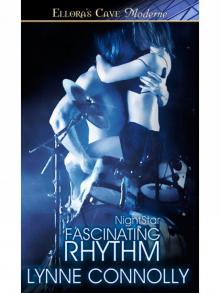 FascinatingRhythm
FascinatingRhythm Fearless
Fearless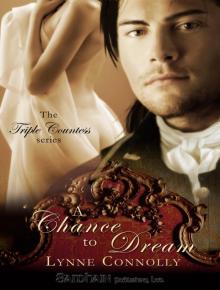 A Chance to Dream
A Chance to Dream Mad for Love: Even Gods Fall in Love, Book 2
Mad for Love: Even Gods Fall in Love, Book 2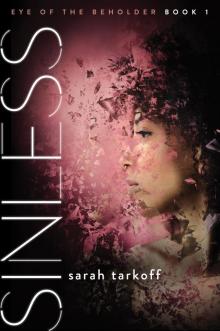 Sinless
Sinless SailtotheMoon
SailtotheMoon Wild Lavender
Wild Lavender Department 57: Rubies of Fire
Department 57: Rubies of Fire Maiden Lane
Maiden Lane Harley Street
Harley Street Dauntless
Dauntless NicenEasy
NicenEasy It Started at Waterloo
It Started at Waterloo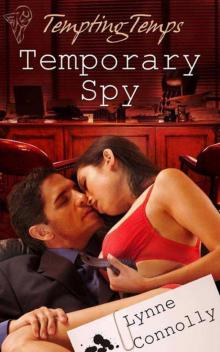 Temporary Spy
Temporary Spy BorntobeWild
BorntobeWild Dilemma in Yellow Silk
Dilemma in Yellow Silk Yorkshire
Yorkshire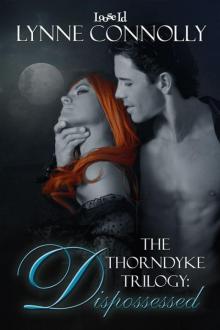 The Thorndykes 1: Dispossessed
The Thorndykes 1: Dispossessed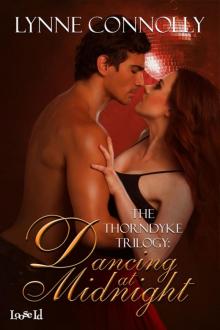 The Thorndyke Trilogy 2: Dancing at Midnight
The Thorndyke Trilogy 2: Dancing at Midnight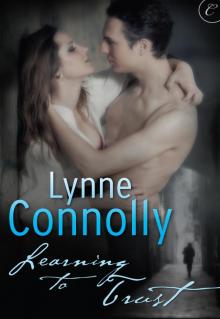 Learning to Trust
Learning to Trust Her Quicksilver Lover: Even Gods Fall in Love, Book 6
Her Quicksilver Lover: Even Gods Fall in Love, Book 6 Loving Lucy
Loving Lucy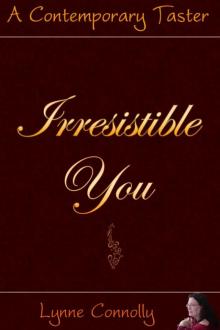 Irresistible You
Irresistible You Arrows of Desire: Even Gods Fall in Love, Book 3
Arrows of Desire: Even Gods Fall in Love, Book 3 Unbroken
Unbroken Devonshire
Devonshire Reckless in Pink
Reckless in Pink Rogue in Red Velvet
Rogue in Red Velvet